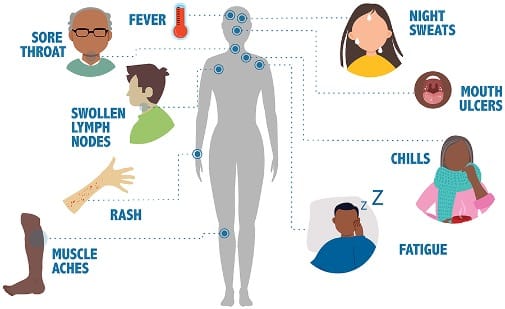Sexually Transmitted Infections (STIs)
About Sexually Transmitted Infections (STIs):
Sexually transmitted infections (STIs) are infections that spread through sexual contact. STIs are preventable and can be cured. If you test positive for an STI, both you and your partner(s) will need to be treated to prevent reinfection. STIs pass from one person to another through vaginal, oral, and anal sex. They can also spread through intimate skin to skin contact. Some of the most common STIs include chlamydia, gonorrhea, syphilis, and trichomoniasis. If you have an STI, you may be more likely to get HIV or transmit it to others (https://www.cdc.gov/std/hiv/stdfact-std-hiv.htm ).
Chlamydia https://www.cdc.gov/std/chlamydia/stdfact-chlamydia.htm
Gonorrhea https://www.cdc.gov/std/gonorrhea/stdfact-gonorrhea.htm
Syphilis https://www.cdc.gov/std/syphilis/stdfact-syphilis.htm
Trichomoniasis https://www.cdc.gov/std/trichomonas/stdfact-trichomoniasis.htm
Common Symptoms of STIs:
- Abnormal discharge from the vagina/internal genitalia
- Discharge or bleeding from the penis/external genitalia
- Discharge or bleeding from the anus
- Pelvic or abdominal pain
- Sore throat
- Sores around the sites you have sex
- Swollen or tender testicles
- Unusual and prolonged itching in the genital area or anus
- Pain or burning when you pee
- Unexplained fever or joint pain or rash
Testing once a year is recommended if you are sexually active. You may want to get tested more, depending on your sex practices or the presence of symptoms. Testing is available at Lummi Tribal Health Center. Call Lummi Public Health or ask your provider if you are interested in getting tested.
Prevention:
There are different ways to prevent STIs. Each person and their partner(s) should decide what works best for them.
- Number of partners. The more people you have sex with, the greater your chances of getting an STI. Encourage new partners to get tested for STIs. Get tested yourself when you begin a new sexual relationship.
- Don’t mix drugs and alcohol with sex. Drinking alcohol and using drugs can lower your ability to make healthy and safe choices about sex. Make a plan with your partner(s) before drinking alcohol or using drugs.
- Avoid IV (injected) street drugs, and never share needles. Some STIs can spread through IV drug use.
- Get vaccinated. HPV (common types), hepatitis A, and hepatitis B can be prevented with vaccines. Talk to your provider about getting vaccinated.
- Use condoms. When used correctly, condoms are very effective at preventing spread of STIs. Use a condom every time you have anal, vaginal, or oral sex. You can use a dental dam for oral sex if a condom does not work for you.
- Condoms are free at Lummi Tribal Health Center and at many other clinics/healthcare settings. They can also be purchased at most stores and pharmacies. You can use this map (link: https://www.freecondomswa.com/map) to find free condoms in WA state.
- How to use an external condom (to put onto a penis or toy) https://www.cdc.gov/condomeffectiveness/external-condom-use.html?CDC_AA_refVal=https%3A%2F%2Fwww.cdc.gov%2Fcondomeffectiveness%2Fmale-condom-use.html
- How to use an internal condom (inserted into a vagina or anus) https://www.cdc.gov/condomeffectiveness/internal-condom-use.html
- How to use a dental dam (used for oral sex) https://www.cdc.gov/condomeffectiveness/Dental-dam-use.html
- Condoms are free at Lummi Tribal Health Center and at many other clinics/healthcare settings. They can also be purchased at most stores and pharmacies. You can use this map (link: https://www.freecondomswa.com/map) to find free condoms in WA state.
Information adapted from Whatcom County Health Department (https://www.whatcomcounty.us/3299/Sexually-Transmitted-Infections-STIs) and the CDC (https://www.cdc.gov/std/default.htm)
Human Immunodeficiency Virus (HIV)
HIV (human immunodeficiency virus) is a virus that attacks the body’s immune system. Your body’s immune system works to defend your body from outside invaders like viruses or bacteria. If HIV is not treated, it can lead to AIDS (acquired immunodeficiency syndrome), which can be deadly.
There is currently no effective cure for HIV. Once someone gets HIV, they have it for life. Fortunately, HIV can be controlled with proper medical care. People with HIV who get effective HIV treatment can live long, healthy lives and protect their partners.
Symptoms of HIV can include flu-like symptoms within 2 to 4 weeks after infection. Symptoms may last for a few days or several weeks. Having these symptoms alone does not mean you have HIV. Many other illnesses can cause similar symptoms.

Some people with HIV have no symptoms at all. The only way to know if you have HIV is to get tested. Testing is available at Lummi Tribal Health Center. Call Lummi Public Health to make an appointment or talk to your provider at your next visit.
More information about HIV can be found here: https://www.cdc.gov/hiv/basics/whatishiv.html
Sources: www.cdc.gov and www.whatcomcounty.us/3186/Health-Department

